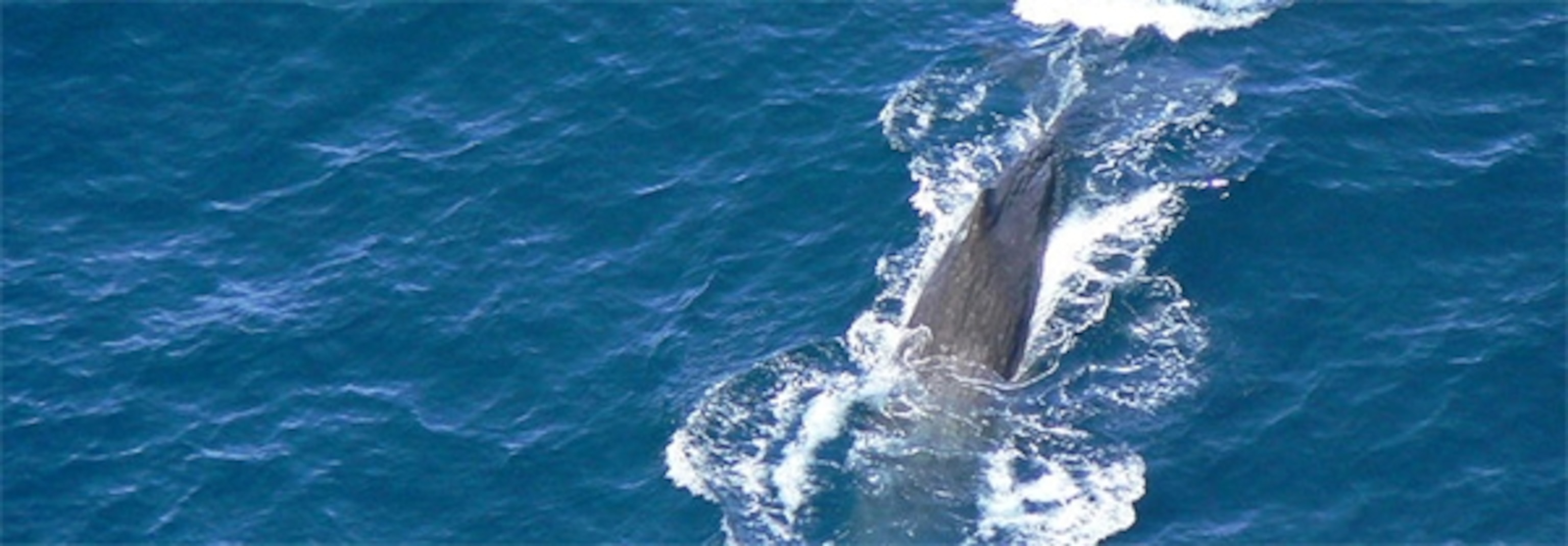
Sperm whale poo offsets carbon by fertilising the oceans with iron
While the world wrangles over ways of reducing carbon emissions, some scientists are considering more radical approaches to mitigating the effects of climate change. Dumping iron dust into the world’s oceans is one such strategy. Theoretically, the iron should act as fertiliser, providing a key nutrient that will spur the growth of photosynthetic plankton. These creatures act as carbon dioxide pumps, removing the problematic gas from the air and storing the carbon within their own tissues. When the plankton die, they sink, trapping their carbon in the abyss for thousands of years.
It may seem like a fanciful idea, but as with much of our technology, nature beat us to it long ago. Trish Lavery from Flinders University has found that sperm whales fertilise the Southern Ocean in exactly this way, using their own faeces. Their dung is loaded with iron and it stimulates the growth of plankton just as well as iron dust does.
Sperm whales are prodigious divers, descending to great depths in search of prey like squid. When they’re deeply submerged, they shut down all their non-essential bodily functions. Excretion is one of these and the whales only ever defecate when they reach the surface. By happy coincidence, that’s where photosynthetic plankton (phytoplankton) make their home – in the shallow column of water where sunlight still penetrates. So by eating iron-rich prey at great depths and expelling the remains in the shallows, the whales act as giant farmers, unwittingly seeding the surface waters with fertiliser.
There are approximately 12,000 sperm whales left in the Southern Ocean. By modelling the amount of food they eat, the iron content of that food, and how much iron they expel in their faeces, Lavery calculated that these whales excrete around 50 tonnes of iron into the ocean every year. And based on the results of our own iron fertilisation experiments, the duo calculated that every year, this amount of iron traps over 400,000 tonnes of carbon in the depths, within the bodies of sinking plankton.
Previously, scientists assumed that whales (and their carbon dioxide-rich exhalations) would actually weaken the Southern Ocean’s ability to act as a CO2pump. But according to Lavery, this isn’t true. She worked out that the whales pump out just 160,000 tonnes of carbon through their various orifices. All of these figures are probably conservative underestimates but even so, they suggest that sperm whales remove around 240,000 more tonnes of carbon from the atmosphere than they add back in. They are giant, blubbery carbon sinks.
However, their true potential will go largely unfulfilled thanks to our harpoons. Many sperm whales have been killed by industrial whalers, and the population in the Southern Ocean has declined by some 90%. On the bright side, the Southern Ocean’s population represent just 3% of the global total, so this species may have an even greater role as a warden for carbon than Lavery has suggested. Other seagoing mammals probably have a part to play too, provided that they feed at depth and excrete near the surface. Several other toothed whales do this, and some filter-feeding ones may do too.
Reference: Proc Roy Soc B http://dx.doi.org/10.1098/rspb.2010.0863
Image by Cianc